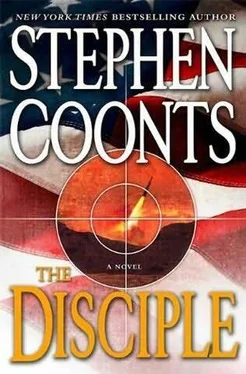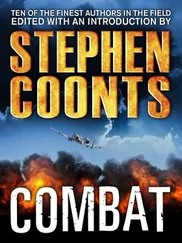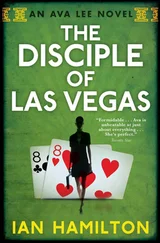Stephen Coonts - The Disciple
Здесь есть возможность читать онлайн «Stephen Coonts - The Disciple» весь текст электронной книги совершенно бесплатно (целиком полную версию без сокращений). В некоторых случаях можно слушать аудио, скачать через торрент в формате fb2 и присутствует краткое содержание. Жанр: Триллер, на английском языке. Описание произведения, (предисловие) а так же отзывы посетителей доступны на портале библиотеки ЛибКат.
- Название:The Disciple
- Автор:
- Жанр:
- Год:неизвестен
- ISBN:нет данных
- Рейтинг книги:4 / 5. Голосов: 1
-
Избранное:Добавить в избранное
- Отзывы:
-
Ваша оценка:
- 80
- 1
- 2
- 3
- 4
- 5
The Disciple: краткое содержание, описание и аннотация
Предлагаем к чтению аннотацию, описание, краткое содержание или предисловие (зависит от того, что написал сам автор книги «The Disciple»). Если вы не нашли необходимую информацию о книге — напишите в комментариях, мы постараемся отыскать её.
The Disciple — читать онлайн бесплатно полную книгу (весь текст) целиком
Ниже представлен текст книги, разбитый по страницам. Система сохранения места последней прочитанной страницы, позволяет с удобством читать онлайн бесплатно книгу «The Disciple», без необходимости каждый раз заново искать на чём Вы остановились. Поставьте закладку, и сможете в любой момент перейти на страницу, на которой закончили чтение.
Интервал:
Закладка:
Without thinking, Captain Pac pulled the.45 automatic from the holster strapped to his thigh. He kept it pointed down, at the ground. Fortunately Fry had turned so he was facing the factory, which meant he had maneuvered the cops into turning their backs on the building.
Pac glanced one last time at his watch. Ten more seconds. Fry had crossed his hands in front of his chest and shifted his weight to one foot. Very good. Fry was one cool customer.
“Five… four… three… two… one,” Paczkowski muttered, then motioned to his men and walked through the door. He headed straight for Fry, who looked completely relaxed and nonchalant.
When Pac was fifteen feet from the cops, one of them saw the troops trotting toward the chopper and turned quickly to look at the factory.
Pac already had his pistol up at arm’s length. He fired once, dropping that cop, then shifted and shot the other one, who was trying to turn and draw his pistol at the same time.
“Let’s put them in the police car,” he shouted at Fry, “then drive it over by the building.”
“Looks like more police heading your way,” said a voice over the radio. “Two minutes, maybe.”
One of the cops was still alive. Fry shot him again; then Fry and Captain Pac loaded the Iranians into the car. Fry drove it over to the building as the rest of the team piled onto the choppers. The one in front was filled first, so it lifted into a hover amid a spray of loose gravel, turned left ninety degrees, then accelerated as it climbed. The second one, with Warrant officer Fry aboard, went as Paczkowski ran for the last one. He was barely aboard when he felt it lift from the gravel.
As the chopper went over the street, he saw another police car coming around the corner of the factory.
Runyon Paczkowski dug into the backpack he had left aboard the chopper and pulled out a radio transmitter. He turned it on, waited for a green light, then checked the frequency.
The chopper was about a mile from the factory, flying at two hundred feet above the city, when Pac lifted the red shield that guarded the detonator button and pushed it. He glanced out of the open chopper door, looking back the way they had come. Sure enough, the factory was going up in a huge ball of fire. Lord, it looked like half of Tabriz was exploding!
Sergeant Rodriquez eased his head out, too, and pounded Paczkowski on the back.
In the War Room of the Pentagon, Jake Grafton and the generals watched the ScanEagle feed of the factory going up. Less than a minute after the detonation, the heat from the explosions wiped out the infrared picture. The light from the blast and ensuing fires showed nicely on the natural-light television video. Then something, smoke, probably, obscured the picture. The smoke was warm, so the infrared picture merely glowed.
After a minute or so the drone pilots had their birds into clear air, and the sensors refocused. The initial blast seemed to have leveled the factory, but the rubble was now afire and burning intensely.
The generals shook hands all around, then got up and left. Jake stayed in his seat and called Sal Molina on his cell. “They got it.”
“Everyone okay?”
“I think so. They’re on their way back to Iraq. Got some mountain passes to get through, but the weather is acceptable.”
“Call me tomorrow when you get a copy of the debrief.”
“Yessir.”
Jake leaned back in his chair and rubbed his forehead. The three Hind helicopters had an hour to fly before they crossed the Iraq-Iran border. Once in Iraq, they would refuel on the ground.
The army had pulled out all the stops to make this commando raid happen-yet if the Iranians acted quickly, they could still catch the he li copters carrying the troops. Too bad Paczkowski had to blow the factory immediately. It would have been much better if the timers on the de mo lition charges had detonated the bombs an hour from now, when the choppers were safely in Iraq.
Jake Grafton well knew the burdens of command, and he appreciated the risk Paczkowski had decided to run. The mission came first, so he had detonated the charges rather than take the chance the police would find and disarm them. If the Iranians shot the choppers down, the surviving Special Forces solders and helicopter crews would just have to fight their way out of Iran or die trying. But that bomb factory would be history.
“Twenty-first century or not,” Jake Grafton said aloud, although the duty officers twelve rows down couldn’t hear him, “we still need good soldiers.”
WHAT HAS THE GOVERNMENT DONE WITH $200 BILLION IN OIL REVENUES? the headline screamed in the Tehran newspaper. I thought that an excellent question. Iran had been living on its oil revenues, and now that the price of oil had dropped almost a hundred dollars a barrel, the flow of cash was greatly diminished. The government was hurting for the cash to fund the social programs that kept the population alive. The mullahs, of course, were paid government salaries, so they didn’t share in the common man’s pain.
The average Ahmad had plenty of pain. The inflation rate was 25 percent, with the price of food rising 35 percent in the previous month alone. Unemployment was rampant, and it was impossible to finance real property, machinery or inventory purchases.
The Parliament was at loggerheads with Ahmadinejad, who wanted to end state subsidies on fuel, electricity and water, and enforce the sales tax. Clearly, the natives were getting restless.
“So whaddaya think?” I asked my expert, Frank Caldwell. We were on a break from disappointing supplicants anxious to leave the Islamic Republic, sipping coffee and trading newspaper sections.
“This place reminds me of a boiler with the safety valve wired shut,” Frank replied.
“It’s all the fault of the Great Satan,” I said and turned the page of my newspaper.
“Gotta blame somebody,” Frank agreed. “Certainly this mess couldn’t be the fault of God’s Elect.”
After work I spent the afternoon in a carpet museum broadening my mind, then walked a while, people-watching and taking in the scene. I wondered if I was going to get any cooperation from Davar Ghobadi. She certainly wasn’t a loyal fan of the regime, and she also had a bunch of friends who weren’t. Or was all that just an act? Musing along these lines, I coughed up the worst of the lung crud and went back to the hotel for a shower.
The hotel used magnetic cards for keys. I inserted mine, the light turned green, and in I went. As the door swung shut behind me, I stopped dead. Davar Ghobadi was sitting in the soft chair beside the bed wearing nothing but a short nightie and smoking a cigarette.
I took a quick look right and left. Nope. She was the only one.
Before she could say anything, I held my hand up to silence her. I went over behind the television, pulled the handful of wires and cables up where I could see them and found the on-off switch I had installed to silence the IRGC’s bugs. I flipped it off, then tucked the wires back where they belonged.
I turned around to face her. “How’d you get in here?”
She held up a door card.
“Where’d you get it?”
“A friend of mine works here.” She stretched out a leg and pointed her bare toes, then pulled it back.
“Are you aware of the fact that this hotel is under twenty-four hour surveillance by the IRGC? That every room in the hotel is bugged?”
“Didn’t you just turn the bugs off?”
“Yes, but-”
“See, I have faith in you, Tommy Carmellini.” She had some trouble getting her tongue around my last name, but she did it. “Besides, the IRGC toadies have been watching me come and go, here and there and everywhere, for years, and they’ve said nothing. They’re watching you infidel suit-and-tie spies.”
Читать дальшеИнтервал:
Закладка:
Похожие книги на «The Disciple»
Представляем Вашему вниманию похожие книги на «The Disciple» списком для выбора. Мы отобрали схожую по названию и смыслу литературу в надежде предоставить читателям больше вариантов отыскать новые, интересные, ещё непрочитанные произведения.
Обсуждение, отзывы о книге «The Disciple» и просто собственные мнения читателей. Оставьте ваши комментарии, напишите, что Вы думаете о произведении, его смысле или главных героях. Укажите что конкретно понравилось, а что нет, и почему Вы так считаете.












